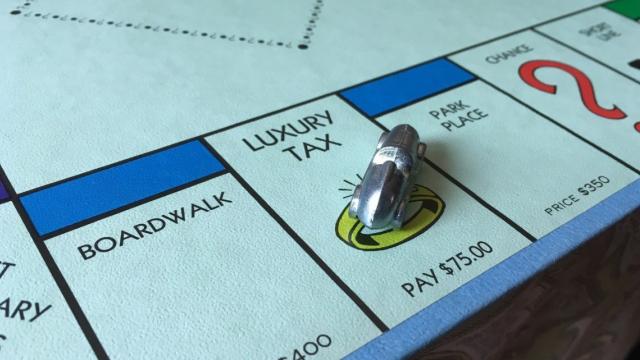
Last week, The New York Times reported that hedge fund billionaire and GOP megadonor Kenneth Griffin shelled out a record $238 million for a penthouse apartment overlooking Central Park. The news came just days after Oxfam International reported that 26 billionaires have the same combined net worth as the poorest 3.8 billion people on the planet. Meanwhile, many of America’s richest corporate executives spent the week hobnobbing in Davos, Switzerland, where they focused on the preposterous idea of “upskilling” as a potential answer to rising economic inequality.
It seems every day brings a fresh reminder of how the economy is rigged in favor of an out-of-touch financial elite gobbling up more and more of America’s wealth. Yet until recently, our political leaders have, with few exceptions, failed to respond with the kind of bold policies required to make a dent in the problem. Sen. Elizabeth Warren’s idea for a new “wealth tax” is the latest reason to believe that may finally be changing.
Warren’s proposal would levy a modest annual tax on the 75,000 wealthiest households in the country — or roughly the top 0.1 percent. The plan was formulated with the help of University of California at Berkeley economists Emmanuel Saez and Gabriel Zucman, two of the world’s leading experts on income and wealth inequality, who estimate that it would raise $2.75 trillion over a decade. Specifically, Warren is calling for a tax of 2 percent on the assets of those with a net worth above $50 million and 3 percent on billionaires. “By asking our top 75,000 households to pay their fair share, my proposal will help address runaway wealth concentration and at the same time accelerate badly needed investments in rebuilding our middle class,” she said.
A wealth tax is a sensible policy response to the growing concentration of wealth among the super-rich that is fundamentally at odds with a functioning democracy. Today, the top 1 percent of U.S. households own 40% of America’s wealth, which is more than the bottom 90 percent combined. And regressive GOP policies, such as President Trump’s $1.5 trillion tax giveaway to corporations and the rich, are making the country even more unequal and less democratic. “Just as we have a climate crisis, we have an inequality crisis,” Saez and Zucman recently wrote, adding, “An extreme concentration of wealth means an extreme concentration of economic and political power.”
Although it has been proposed before, the idea of a wealth tax is now gaining more traction than ever. Indeed, Warren’s proposal is a potential game changer. Her status as top 2020 presidential contender is forcing many in the media to pay attention to a problem they often ignore. Much like Rep. Alexandria Ocasio-Cortez’s suggestion that top earners should pay marginal tax rates as high as 70 percent, Warren’s plan has already won support from voices typically aligned with the Democratic establishment. “The incidence of extreme wealth inequality — as well as the magnitude of never-taxed wealth — is just so obscene at this point in our nation that I think there is simply no choice but to explore a wealth tax like this,” said Gene Sperling, who served as a top economic adviser in both the Obama and Clinton administrations.
Many on the right are already lashing out at Warren’s proposal. (On Fox News, it was preposterously likened to Venezuelan socialism.) Others have argued that it would be unconstitutional, a dubious claim that relies on a controversial 1895 Supreme Court ruling that, as the Institute on Taxation and Economic Policy explains, “has been limited to the point of irrelevance by subsequent opinions.” But the swift blowback from Warren’s critics is not surprising given that a wealth tax is all but certain to be extremely popular. For years, polls have consistently shown that Americans favor raising taxes on the wealthy. A survey this month found that, despite attempts to portray Ocasio-Cortez’s idea as radical, nearly 60 percent of Americans support much higher marginal tax rates. Moreover, while inequality has become so extreme that it can sometimes feel paralyzing, a wealth tax is a simple and bold idea that people can mobilize behind.
As Democrats’ ideas primary ramps up, plans to take on economic inequality should continue to get more attention, especially if Sen. Bernie Sanders enters the race as expected. Warren deserves credit for injecting new ideas into the conversation, but a wealth tax is just one of many policies that are worthy of consideration. What is clear is that the American people are hungry for far bolder measures than our political leaders have offered in the past. May the best ideas win.
Originally published by The Washington Post
















